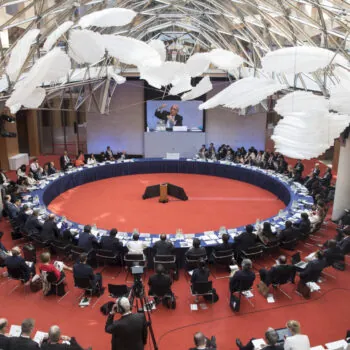Against a backdrop of growing international pressure upon Japan as it develops its low carbon offer for the global climate talks in Paris[1] and Prime Minister Abe’s visit to Washington DC, E3G reveals a new report entitled “Rising Sun, Sinking Influence?” charting the economic, geopolitical and security impacts of Japan’s decisions to roll back on its action to curb climate change.
Japan is usually seen from abroad as a smart, efficient economy which is well positioned to reap the rewards from new technology opportunities, but this perception is unravelling as Japan fails to engage with the renewable and smart energy revolution.
Fukushima demonstrated the resolve of the Japanese people in the face of crisis. While Japan’s immediate increased reliance on fossil fuels was understandable, the grace period is now over. Japan’s decision to build a fleet of new coal power stations, while restricting the growth of renewables and failing to improve efficiency, is putting it more and more out of step with global economic and political trends.
Taylor Dimsdale, Head of Research at E3G said:
“The US-China climate agreement puts Japan on the back foot, whilst Germany proves that it’s possible to decarbonise and phase out nuclear. Japan is running out of excuses not to act. The Japanese government’s roll back of its climate goals puts it at odds with its major competitors like China who are reaping the rewards of global decarbonisation”.
He continues:
“Global progress towards fossil fuel phase out is accelerating and inevitable, but time is of the essence. Japan has all the ingredients to be a clear winner in the low carbon future. But Prime Minister Abe is only looking to the old, incumbent coal and nuclear industries, while ignoring the modern high tech sectors and the demands of its citizens”.
The report outlines the vulnerability and exposure of Japan to natural disasters. Japan relies upon a functioning global supply chain to maintain the prosperity and competitiveness of its companies and citizens. Climate change will severely disrupt and in some case destroy these supply chains. Climate impacts will not only disrupt resources, but also fundamentally undermines regional security. Asia is extremely vulnerable to climate impacts, and has more fatalities and economic losses from natural catastrophes than any other region. Total global reported losses are almost US$4tr since 1980 with three quarters the result of extreme weather. Asia accounts for half of this total – about US$53bn per year[2].
Nick Mabey, Chief Executive of E3G said:
“Japan is conscious of Chinese assertiveness in the region and must look to its neighbours to act as a balance. But climate change threatens to destabilise the relative peace in the region, an issue that Japan can’t manage alone. Japan has often been the first responder in the wave of natural disasters that are intensifying across Asia. Climate change jeopardises these efforts. To protect Japan’s own interests they should step up their efforts to curb emissions and limit the damages caused”.
As climate change becomes central to issues like trade, investment, security and foreign policy, Japan not only risks losing influence in climate negotiations but also in the evolving global multilateral order. This is at odds with Prime Minister Abe’s own vision for the future. The report concluded that through its inaction, Japan is self-marginalising.
Liz Gallagher, Climate Diplomacy Programme Leader at E3G said:
“Japan is taking itself out of the game, just as the game heats up. Japan wants to sit this out, in the hope that climate politics and action will disappear. As a major competitor, Japan ought to care about China reaping the rewards of Japan’s hard work, but it seems to be avoiding making an active choice about its future”.
Contact
Taylor Dimsdale, Head of Research, +1 (0) 240 381 4594
Nick Mabey, Chief Executive of E3G, +44 (0) 7949 768 771
Liz Gallagher, Climate Diplomacy Programme Leader, +44 (0) 7920 461 838
The report is available to download in English and Japanese in the attachments.
[1] http://uk.reuters.com/article/2015/04/26/energy-solar-power-idUKL5N0X51O120150426 [2] http://asiafoundation.org/in-asia/2014/09/17/financing-the-costs-of-climate-change-in-disaster-prone-asian-nations/

